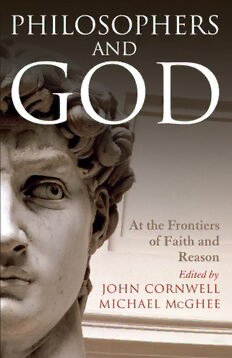
Philosophers and God: At the Frontiers of Faith and Reason PDF
275 Pages·2009·14.203 MB·English
Most books are stored in the elastic cloud where traffic is expensive. For this reason, we have a limit on daily download.
Preview Philosophers and God: At the Frontiers of Faith and Reason
Description:
Public interest in religious debate in the UK and USA has recently been fed by a series of books of popular polemic against theism, religion and the discipline of theology itself. A small industry has grown up around these works—by Dawkins, Dennett, Hitchens, and others—but many have complained not just of their theological illiteracy but also of their tendency to conflate religious belief with fundamentalism. They have contributed to a public atmosphere of anti-pluralist hostility to the expression of "faith positions." The atmosphere in Britain of aggressive secularism contrasts sharply with a public culture in the USA of religious conservatism that is suspicious of secular humanism. Here, a series of philosophers reflect, in an exploratory and confessional spirit, upon the status and sources of their religion or other spiritual sympathies—this may come in the form of a commitment to faith, an openness to religion, or another experience of transcendence. The authors get down to the essentials of religious agnosticism, the limits of secular humanism, the idea of conversion, the nature of despair, and the possibility of moral objectivity.
See more
The list of books you might like
Most books are stored in the elastic cloud where traffic is expensive. For this reason, we have a limit on daily download.
